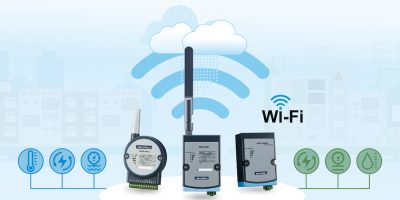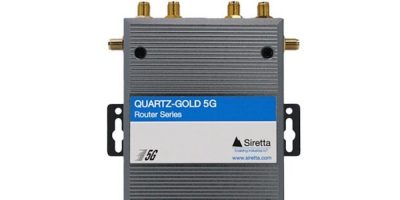Advantech has introduced the new WISE-4250 dual band based Industrial Wi-Fi I/O Module. The WISE-4250 features interchangeable I/O and sensors integrated with IoT data acquisition, processing and publishing. Data can be sent directly from Edge to Cloud with higher security and no loss functions. All Wi-Fi channels can be flexibly connected with a smart roaming function. Users can directly configure products with devices via a HTML5 based web page user interface. Products support RESTful API in JSON format for any IoT integration.
The WISE-4250 supports 2.4/5GHz dual band concurrently, enabling leverage of both frequencies at the same time, reducing wireless interference against device data transmission delay. Diverse I/O modules support a wide range of data acquisition. WISE-4250 provides a number of embedded drivers which can easily plug-and-play with wireless modules. The data logger provides data resume functions ensuring zero data loss during on-line, off-line and power off situations. Users can easily find real data with RTC time stamps.
Secure Edge-to-Cloud AES encrypted security is built-in with 802.1x, up to WPA3 Personal and Enterprise, and effortlessly configurable via P2P (peer to peer) functions with mobile devices. Push data to SCADA, the cloud, or private servers while integrating IoT through RESTful web APIs or diverse protocols.
The WISE-4250 features and industrial-Grade design suitable for use in harsh environments. The device will operate over wide temperature and humidity ranges and provides voltage endurance. Diverse mounting methods and fast roaming simplify implementation in a wide variety of applications.







